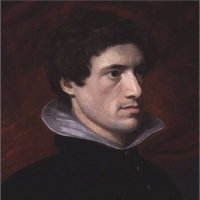The Spartan Boy
When I the memory repeat
Of the heroic actions great,
Which, in contempt of pain and death,
Were done by men who drew their breath
In ages past, I find no deed
That can in fortitude exceed
The noble boy, in Sparta bred,
Who in the temple ministered.
By the sacrifice he stands,
The lighted incense in his hands.
Through the smoking censer’s lid
Dropped a burning coal, which slid
Into his sleeve, and passëd in
Between the folds even to the skin.
Dire was the pain which then he proved;
But not for this his sleeve he moved,
Or would the scorching ember shake
Out from the folds, lest it should make
Any confusion, or excite
Disturbance at the sacred rite.
But close he kept the burning coal,
Till it eat itself a hole
In his flesh. The standers by
Saw no sign, and heard no cry,
Of his pangs had no discerning,
Till they smelled the flesh a—burning.
All this he did in noble scorn,
And for he was a Spartan born.
Young student, who this story readest,
And with the same thy thoughts now feedest,
Thy weaker nerves might thee forbid
To do the thing the Spartan did;
Thy feebler heart could not sustain
Such dire extremity of pain.
But in this story thou mayst see,
What may useful prove to thee.
By his example thou wilt find,
That to the ingenuous mind
Shame can greater anguish bring
Than the body’s suffering;
That pain is not the worst of ills,
Not when it the body kills;
That in fair religion’s cause,
For thy country, or the laws,
When occasion due shall offer,
'Tis reproachful not to suffer.
If thou shouldst a soldier be,
And a wound should trouble thee,
If without the soldier’s fame
Thou to chance shouldst owe a maim,
Do not for a little pain
On thy manhood bring a stain;
But to keep thy spirits whole,
Think on the Spartan and the coal.

